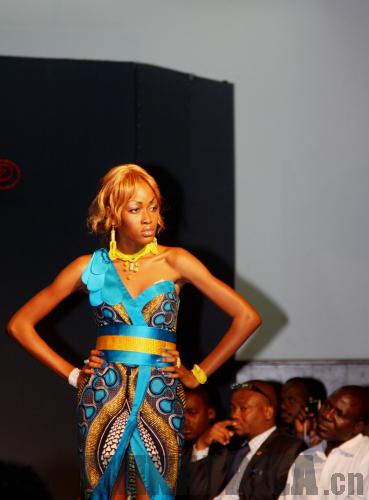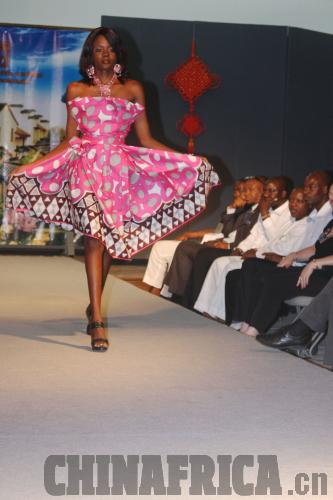|
|

|
|
INTERNATIONAL FABRIC:The African textile market has caught the attention of Chinese investors |
At the 109th Canton Fair, Mao Zhuren was surprised when his clothing range was met with such great interest from African visitors.
"They expressed keen interest in our bright-colored clothing," said Mao, an exhibitor from Shanghai-based Flying Horse Import & Export Co.
Mao's experience seems to gel with findings of official statistics from the organizing committee of Canton Fair, or China Import and Export Fair, which suggest that there are increasing numbers of African businessman, especially in the clothing and textile sector, trading with China. At the 109th Canton Fair in 2011 the South African buyers increased by 21.4 percent. In terms of the clothing and textile sector, China exhibitors' exports turnover to Africa at the Fair rose by $90 million, up 2.5 percent year on year.
Yao Qiao'e, a foreign trade manager of Quanzhou Caroline Garments Co. in southeast China's coastal Fujian Province, was also upbeat.
"There is reason to become optimistic about our African market's growth as African clients are easy to work with," said Yao. "Most importantly, they recognize our brands."
Africa, with its active economy and growth potential, is attracting the attention of Chinese textile enterprises in a big way. Meanwhile, its high-quality cotton, low labor costs, land resources and the priority policies and measures taken by African governments to support the textile industry is motivating more Chinese enterprises to invest in Africa.
Africa's advantages
Soaring cotton prices in China, together with the rising costs and appreciation of the yuan, have put tremendous pressure on the textile and clothing industry, analysts said.
Meanwhile, Africa has substantially increased its cotton production. Cotton production in Mali, one of Africa's major cotton producers, increased from 103,000 tons in 2010/11 to 171,000 tons in 2011/12. Francophone Africa's production is expected to increase 25 percent to reach 619,000 tons in 2013, according to figures estimated by the International Cotton Advisory Committee.
The vast market and affluent resources in Africa make it a big target for the textile industry. Inaugurating "Origin Africa – Ethiopia 2012" textile expo, Meles Zenawi, Prime Minister of Ethiopia, said the continent is attracting investments in the textile and clothing industry owing to availability of raw material and low labor costs.
Yao agreed, saying that her company saw great potential for textile and garment sector investment in Africa due to its low labor costs.
Chinese labor costs have soared in recent years despite a slowdown in the broader economy. Official data showed that in 2011, labor costs rose 10 to 30 percent at clothing manufacturers in Quanzhou, Fujian Province.
"Our products have entered the West African market, and we are planning to establish a factory there," Yao added.
Zhejiang Province-based Yuemei Group provides a good example of Chinese enterprises developing the African market. The Yuemei Group, a textile manufacturing enterprise, owns clothing plants and sales offices in many African countries including Nigeria, Mali, Cameroon and Senegal. In Nigeria, Yuemei has built China's first overseas textile industrial park designed to attract Chinese textile companies.
Nigeria, Africa's most populous country, has a huge textile consumer market, but the textile manufacturing industry is a weak point in the economy, relying on imports for 80 percent of its textile products. In 2007, the company invested over $50 million to construct Yuemei Nigeria Textile Industry Park, to facilitate more Chinese textile enterprises to do business abroad.
Yuemei has gradually created a complete production chain of spinning, weaving, embroidery, knitting, and garment making in the park, said its President Xu Zhiming.
Yuemei also boosts the local industrial development capability. During peak season, the company has outsourced to the local farmers, which allowed them to buy more than 4,000 weaving machines and to earn extra income of more than 40 million yuan ($6.3 million) annually.
 |
|
INTERNATIONAL FABRIC:The African textile market has caught the attention of Chinese investors |
|